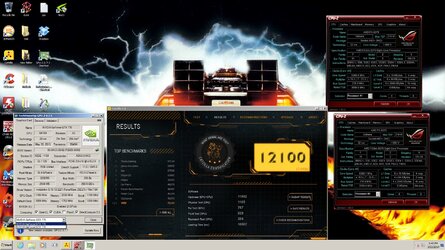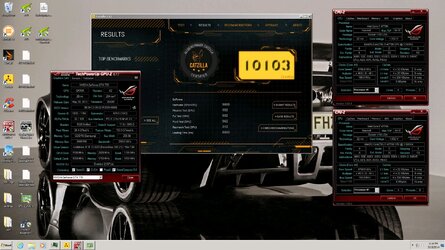- Joined
- Aug 14, 2014
So since i switched from AMD to Intel i have been testing my collection, and a few stand out, for example Mass Effect 3 (and before you ask i know exactly just how much of a ****ty console port it is), in my setup i altered the game files to put in 2048/4096 textures instead of the regular 512/1024 for armor/weapons/etc and kicked up the quality on the options file above the normal maximum, plus using FXAA Injector for lighting effects, end result is amazing, is what it SHOULD have been in the 1st place. With my 8370 4.7ghz i was able to use 4xSGSSAA with nVidia Inspector and very rarely would dip below the magic 60fps on heavy fight/explosions scenes. With this 6700k same 4.7ghz i'm using 8xSGSSAA for perfect non-jaggies image and it NEVER dips below 60, and the 980Ti seems to be hitting roughly the same temps.
There are other titles with the same interesting differences and i'm certain there will be many more i have never tried, but my question would be, just how much of this is bad programming and how much of it is the higher IPC showing ? are most/all games programmed to work on Intel and AMD is just tagging along or...
There are other titles with the same interesting differences and i'm certain there will be many more i have never tried, but my question would be, just how much of this is bad programming and how much of it is the higher IPC showing ? are most/all games programmed to work on Intel and AMD is just tagging along or...

